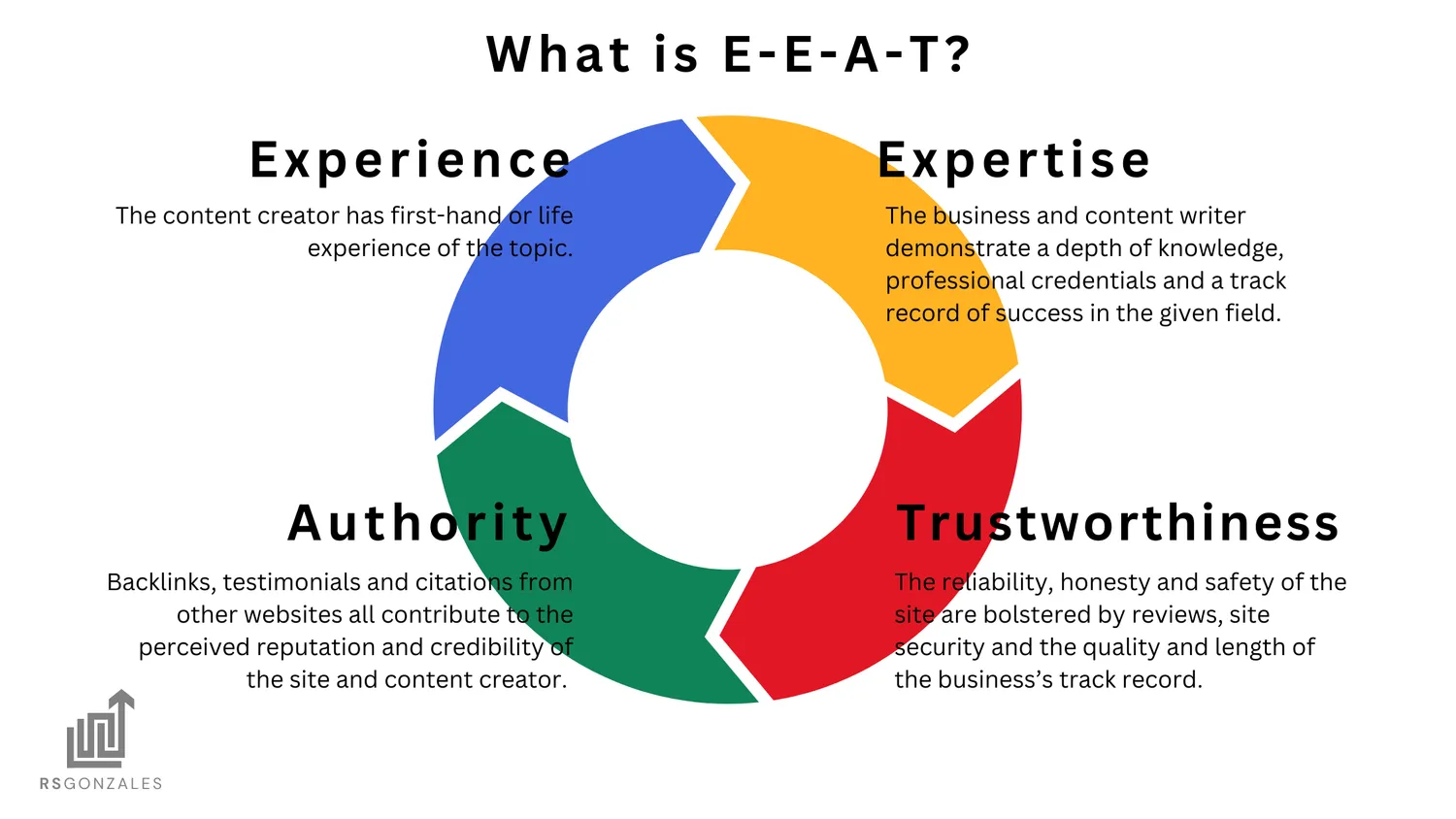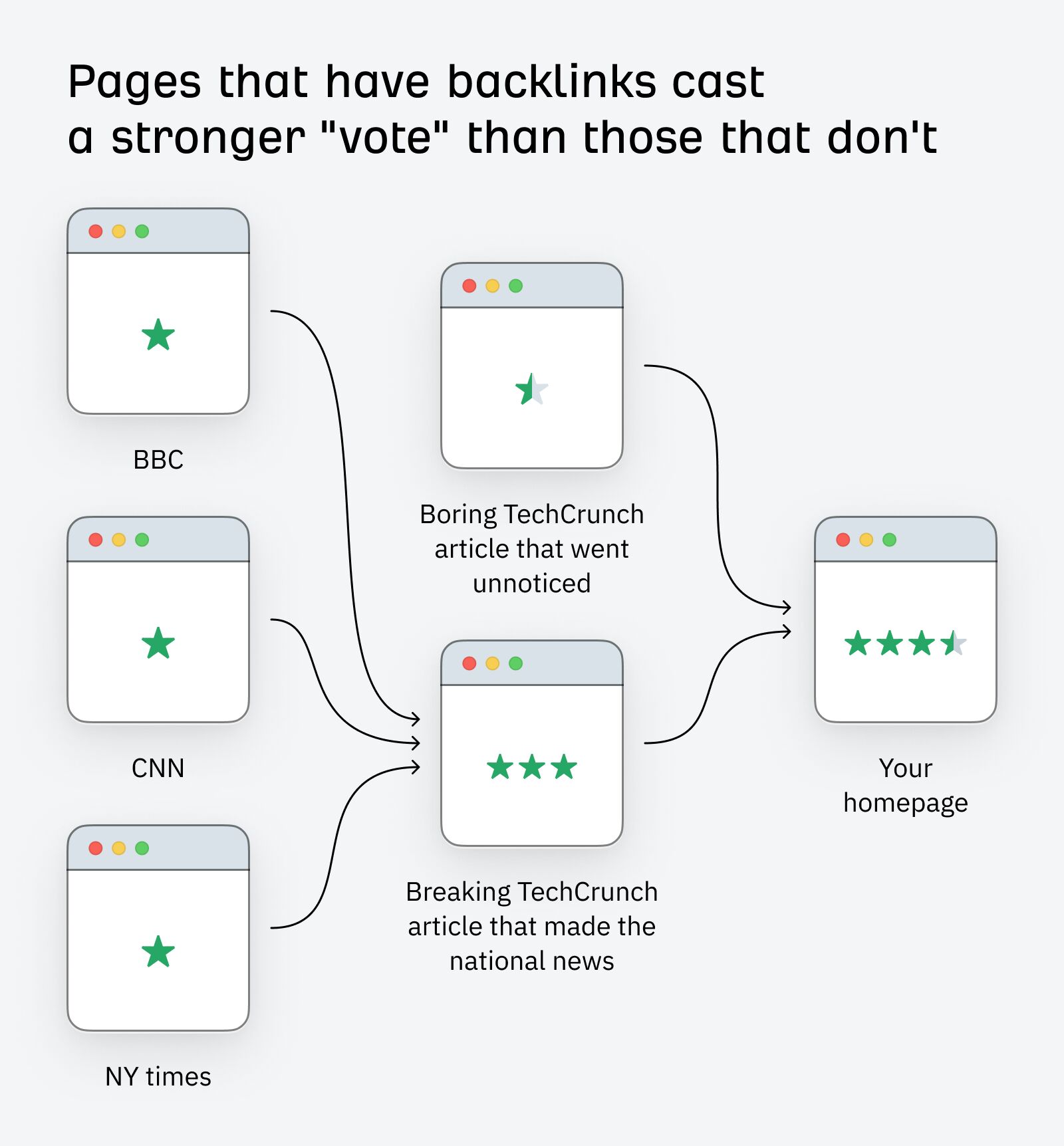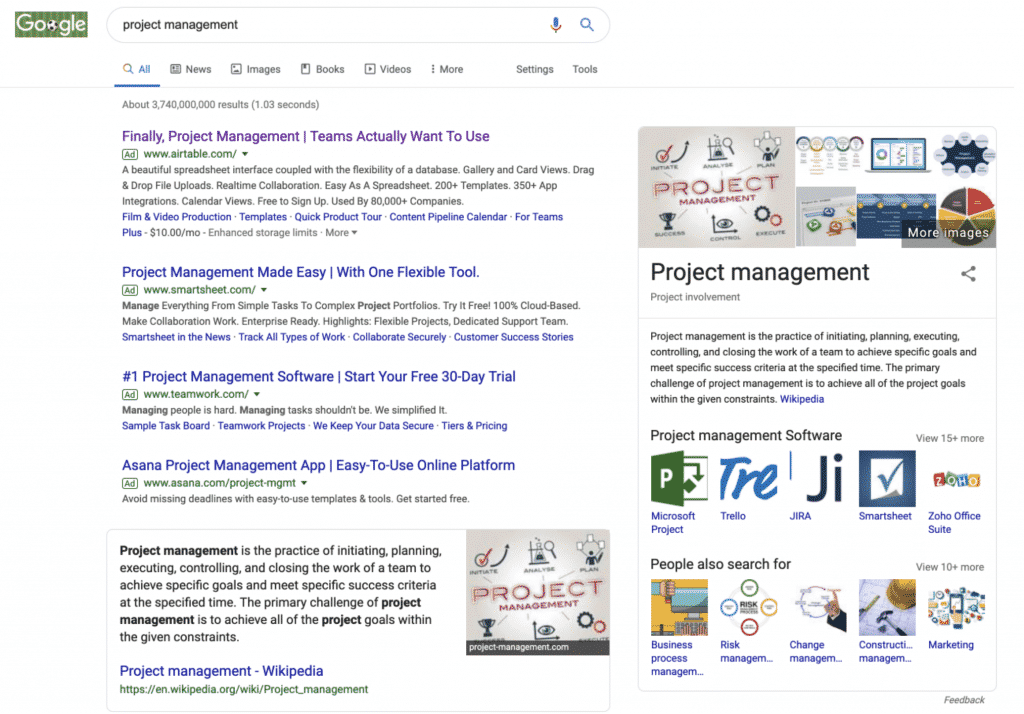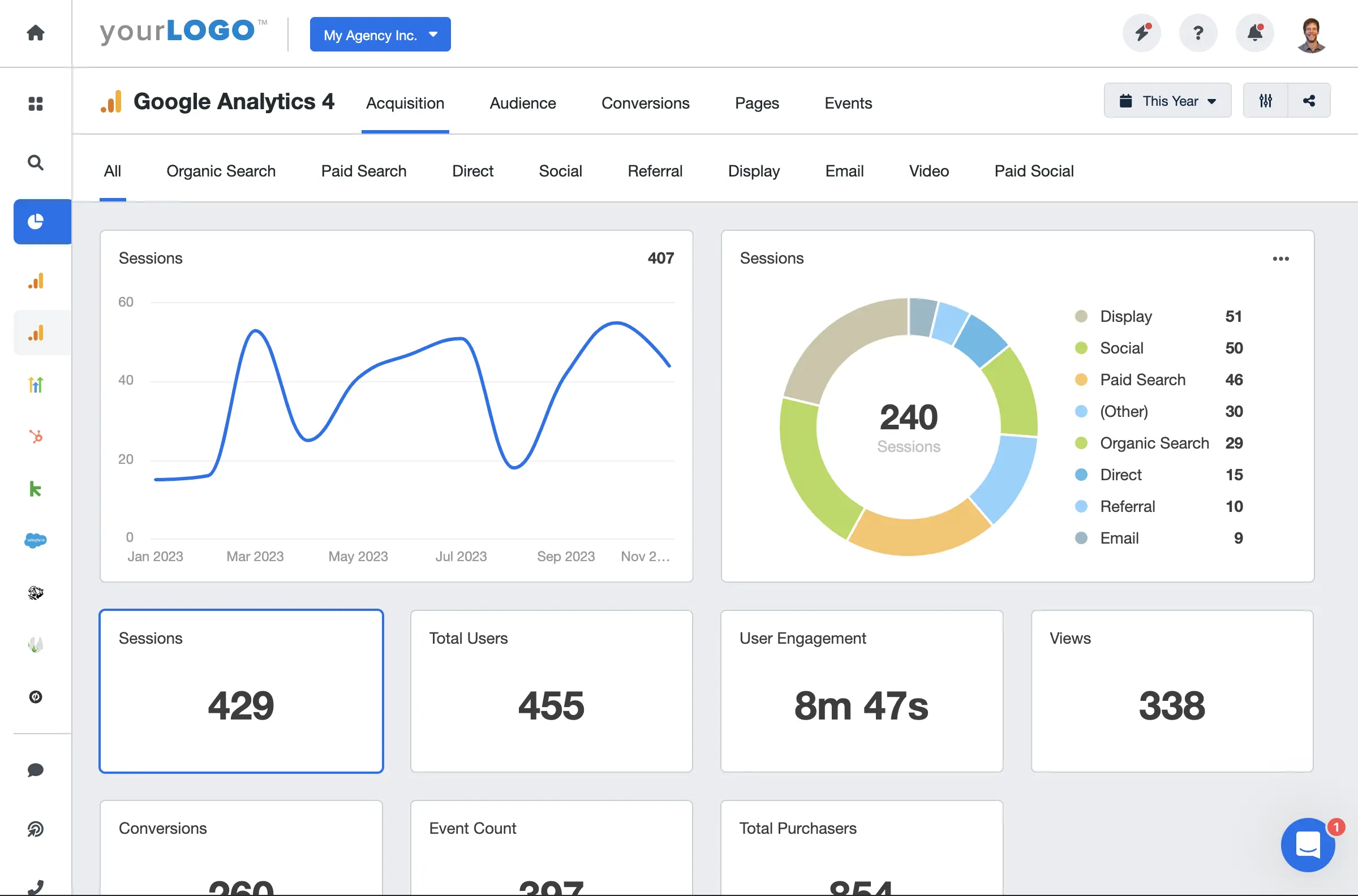How E-E-A-T Can Take Your SEO to the Next Level
Learn how to leverage E-E-A-T—Experience, Expertise, Authoritativeness, and Trustworthiness—to improve your website's credibility and rank higher on Google.
October 8, 2024•7 min read
Contents
If you're trying to get your website to rank higher on Google, you've likely heard of E-E-A-T: Experience, Expertise, Authoritativeness, and Trustworthiness. But what does it really mean, and why should it matter to your small business? Think of E-E-A-T as Google’s version of a credibility meter—it's how the search engine evaluates whether your content is trustworthy enough to serve to its users. The good news? If you can master E-E-A-T, you'll be one step closer to beating the competition and securing that coveted #1 spot in search results.
In this guide, we'll break down what E-E-A-T is, how you can optimize your site for it, and practical ways to enhance your content to meet Google's expectations. We promise to keep it simple, beginner-friendly, and even a little bit fun!
What is E-E-A-T, and Why Does It Matter?
To understand E-E-A-T, think about what makes you trust a person or a brand. You want them to have experience in what they're talking about, show real expertise, be recognized as an authority in their field, and be trustworthy. Google wants the same for the content it ranks highly. E-E-A-T is Google's framework for assessing the quality and credibility of a webpage.
Google uses E-E-A-T as part of its Search Quality Evaluator Guidelines to ensure the content being presented to users is accurate, relevant, and reliable. This is especially important for Your Money or Your Life (YMYL) pages, which cover topics like finance, health, or safety—where misinformation can have significant negative impacts. However, it applies to almost any type of content.
For small businesses, understanding and implementing E-E-A-T can make the difference between being lost in search results and being on page one.

Experience: Sharing First-Hand Knowledge
Google's emphasis on experience means that content creators should ideally have first-hand experience related to the topics they write about. Whether you’re a small bakery writing about the best cake recipes or a roofing company explaining different types of roof materials, Google wants content that showcases direct, practical experience.
How to Show Experience on Your Website:
Write About Your Experiences: If you’re sharing advice, try to include personal stories or examples. For instance, a personal trainer could write about a specific client transformation journey.
Use Real-Life Images and Videos: Photos or videos from your business in action help build a sense of authenticity. Instead of stock photos, use images from your actual projects or customer experiences.
Customer Testimonials and Reviews: Adding customer testimonials that describe their experiences with your products or services can enhance the perceived experience level of your business.
Expertise: Prove You Know Your Stuff
Expertise is all about demonstrating that the content creator has significant knowledge about the topic. This means your content should be well-researched, comprehensive, and written by someone who knows the subject inside out. For a small business, building expertise can help you stand out as an industry leader, even if you’re competing against bigger brands.
How to Demonstrate Expertise:
Author Bios: Always include author bios that highlight the qualifications and expertise of the content creator. For example, if you’re a nutritionist writing about healthy diets, make sure your bio mentions your certifications and experience.
Detailed Guides and Tutorials: Create in-depth content that goes beyond the basics. Detailed how-to guides, tutorials, and informative articles can showcase your in-depth knowledge.
Guest Posts by Experts: Invite other experts in your field to write guest posts. Not only does this add credibility, but it also broadens your content range and authority.
.jpg-1728345869793?alt=media&token=03d6864f-a139-466a-9fd2-cda95369127f)
Authoritativeness: Be Recognized as an Industry Leader
To be seen as an authority in your field, others need to recognize you as a trusted source. This is where backlinks, brand mentions, and industry partnerships come into play. When other authoritative sites link to your content or mention your brand, it signals to Google that your content is valuable and trustworthy.
How to Build Authoritativeness:
Get Backlinks from Reputable Sources: Write high-quality content that other websites want to link to. Reach out to other sites for guest posts or collaborative content.
Feature Mentions and Awards: If your business has won any awards or has been featured in reputable publications, make sure to mention that on your website.
Be Active in Your Industry: Participate in industry events, webinars, or podcasts. This helps build your authority and expand your reach.

Trustworthiness: Show That You’re Reliable
Trustworthiness is the foundation of E-E-A-T, and it’s especially crucial for e-commerce and other businesses handling sensitive information. Users need to know they can trust your website with their personal data or trust that the information provided is accurate.
How to Build Trustworthiness:
SSL Certificates: Ensure your website has an SSL certificate. A secure (https) website is crucial for trust and is a ranking factor.
Customer Reviews and Ratings: Display customer reviews and ratings prominently on your site. Genuine reviews help build user trust.
Transparent Contact Information: Make sure your contact information is easy to find. Having a physical address, phone number, and clear contact forms shows users that they can reach you if needed.
Privacy Policy and Terms of Service: Include a clear privacy policy and terms of service to reassure users that their data is handled responsibly.

Using Structured Data to Enhance E-E-A-T
Structured data, or schema markup, is a way of helping search engines understand the content of your page better. Adding structured data can help enhance how your pages appear in search results—think of rich snippets like FAQs, star ratings, and event details. This not only improves click-through rates (CTR) but also demonstrates your expertise and trustworthiness by making your content more transparent.
How to Implement Structured Data:
Use Google’s Structured Data Markup Helper to create and add schema to your website.
Focus on marking up information like author bios, product details, reviews, and FAQs to help Google better understand your content.

Leverage User-Generated Content for E-E-A-T
User-Generated Content (UGC), such as reviews, testimonials, and community discussions, can significantly boost your E-E-A-T. Google recognizes genuine user experiences as a valuable source of trust. By showcasing customer reviews or allowing users to contribute content, you demonstrate transparency and credibility.
How to Leverage UGC:
Highlight Reviews and Testimonials: Place customer testimonials on your homepage and relevant product/service pages.
Create Community Spaces: Consider adding a forum or Q&A section where users can discuss their experiences with your products or services.
Encourage Social Media Engagement: Engage with your customers on social media and embed these interactions on your website to showcase real customer experiences.

Measuring Your E-E-A-T Success
Once you've implemented these strategies, it's time to measure your success. Tools like Google Analytics and Google Search Console can help you track metrics that indicate improvements in E-E-A-T. Metrics such as bounce rate, time on page, and backlink growth can give you a good idea of how well your content is resonating with both users and search engines.
Key Metrics to Monitor:
Organic Traffic Growth: An increase in organic traffic indicates that your efforts to build experience, expertise, authority, and trust are working.
Backlink Profile: Use tools like Ahrefs or Moz to track the quality of your backlinks and ensure they're coming from reputable, authoritative sources.
Engagement Metrics: Track user engagement, such as the average time on page, pages per session, and bounce rate. High engagement indicates that your content is valuable and trustworthy.

Conclusion
Mastering E-E-A-T can truly take your SEO to the next level, helping your website stand out from the competition and rank higher in search results. By focusing on experience, expertise, authoritativeness, and trustworthiness, you’re not only making your content more appealing to Google but also more valuable to your users. Remember, SEO is not just about algorithms—it’s about people. The more you can build a site that users love and trust, the more Google will love it too.
Start implementing these E-E-A-T strategies today, and watch as your credibility—and rankings—start to soar.

Your Local Web Dev
Website development for small businesses with a focus on SEO using only custom code, never any website builder.
Standard
$200/mo
- - Handwritten Code
- - Mobile-Optimized Layout
- - SEO Integration
- - 5 Tailored Web Pages
- - Hosting & Domain Setup
- - Unlimited Edits
- - 24/7 Support